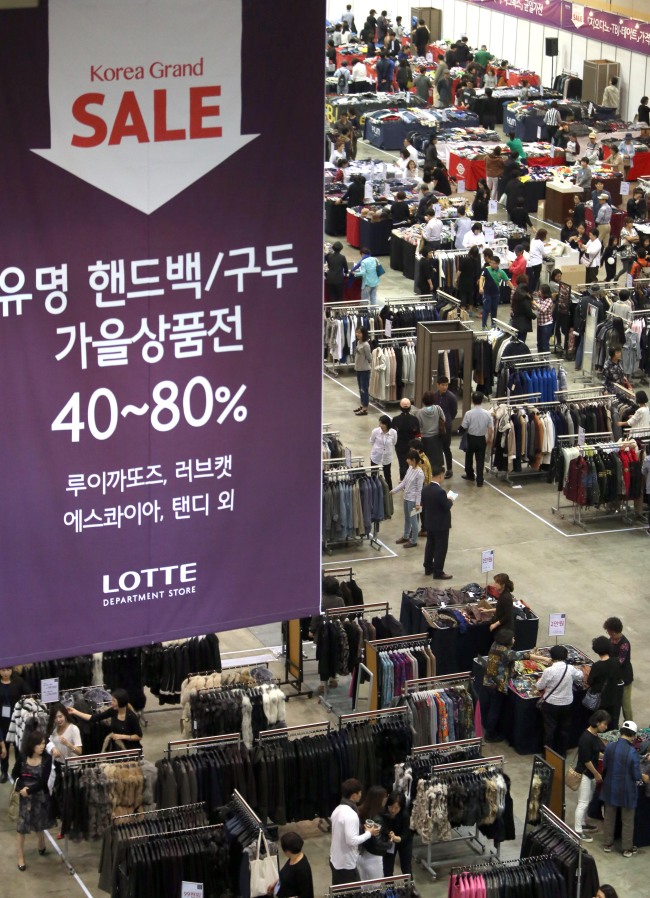 |
| Customers shop at the “Mega Show” by Lotte Department Store in Busan, which was held as a part of the Korean Black Friday sales promotion. (Yonhap) |
The highly anticipated government-led Korean Black Friday sales promotion event ended Wednesday amid mixed evaluations on its success.
Although the two-week discount event by retailers nationwide saw their sales increase, several shortcomings were detected as it was hastily arranged.
As of Monday, about 34,000 outlets or websites of 92 retailers and manufacturers as well as 200 local traditional markets participated in the event that kicked off on Oct. 1 — with most seeing sales soar.
Lotte, Hyundai and Shinsegae department stores reported an average of 24.7 percent jump in sales compared to the same period last year. Even online shopping sites including TV shopping, online duty-free stores and others saw an average of 26.7 percent rise.
Home appliance retailers such as ET Mart and Lotte Hi-Mart have seen an 18.7 percent rise while large discount stores such as E-Mart, Homeplus and Lotte Mart have seen an average of 4.3 percent sales jump.
Encouraged by the positive numbers, the Industry Ministry is reportedly considering making it an annual event.
However, critics have also pointed out many of its drawbacks.
The retailer-led promotion gave less negotiating power to the manufacturers, thus making them reluctant to join the event. Even more, the sales promotion was held just when the producers were scheduled to launch new seasonal goods — with no initiative to give discounts.
“Many of the items that I wanted to buy were excluded from the Black Friday promotion,” 31-year-old Park Ji-eun grumbled as she visited Hyundai Department Store on the first day of the promotion.
This is in sharp contrast to the U.S. Black Friday — held every fourth Thursday of November — led by the manufacturers who have a strong motivation to clear up their inventory before the Christmas shopping season when they sell new products. Thus, they were able to give discounts of up to 80-90 percent.
Moreover, many department stores, who were under pressure to give discounts were afraid of pushing their suppliers to support them, and made the Black Friday a regular annual seasonal sales promotion event.
“When I arrived at the department store, I couldn’t find the Black Friday signs anywhere. When I asked the clerks, they told me that the discount price tags were part of the store’s annual autumn sales promotion,” a visitor to Shinsegae Department Store said.
The Industry Ministry had pressurized the retailers to give more discounts under the name of Black Friday after the initial negative response — with many consumers giving the cold shoulder to the government-initiated event.
“Perhaps next time, the manufacturers and retailers should be given more authority in the decision-making process, from the time period to the range of discounts,” an industry insider said.
By Bae Ji-sook (baejisook@heraldcorp.com)



